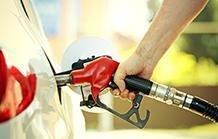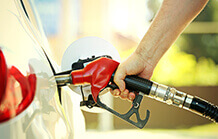
Owning and running a fuel-efficient car should become much more affordable between 2020 and 2030 compared with today, provided new technologies are brought to the market. This is the main finding of a new study released today by The European Consumer Organisation, BEUC.
Key findings:
Electric vehicles will drop in price substantially. By 2024 the average four-year cost2 of running an electric vehicle should match, if not be lower than a petrol car.
Over the lifetime of a petrol or diesel car bought in 2025 compared to one in 2015, consumers could save on average between €4,400 and €9,400.
Used car owners, who are often in lower income groups, will benefit the most from reduced fuel costs. This is due to cars losing their value rapidly in the first few years and in turn meaning they only pay a fraction of the manufacturing costs.
New technologies will not hit the market by themselves; binding EU CO2 reduction targets are essential for incentivising the deployment of fuel efficient technologies.
Whether or not energy prices are high or low in the future, all consumers will benefit from cars being more efficient and the knock on impacts of reducing demand for energy.
Monique Goyens, Director General of BEUC, commented:
“Consumers stand to win big from the cost savings of energy efficient technologies, whatever the type of car they choose to ride. Compared to 2015, filling the tank of a new petrol or diesel car bought in 2025 could save consumers on average €6,500 over the car’s entire lifetime. Electric vehicles should no longer be the privilege of the few but become affordable to the masses within the next decade.
“Today’s cars consume much more than manufacturers claim they do. It is high time cars became a money saver instead of a money drainer. However, the change will not happen by itself, policy makers need to lock in the technology roll out. In 2017 we expect a proposal from the European Commission to drive down CO2 emissions including ambitious reduction targets for cars for 2025 and 2030.
“More electric cars on the road will also require more charging points. Consumers need certainty that refuelling will be convenient and accessible whether they want to charge at home, at work, or whilst on the road.”
Background
According to EU Commission plans, by 2050 the transport sector’ CO2 target will be 60% below the 1990 levels. To achieve this goal, passenger cars will need to go through substantial technological improvements over the coming years. Low carbon cars are key to spur this change.
BEUC acts as the umbrella group in Brussels for its members and our main task is to represent them at European level and defend the interests of all Europe’s consumers. BEUC investigates EU decisions and developments likely to affect consumers, with a special focus on five areas identified as priorities by our members: Financial Services, Food, Digital Rights, Consumer Rights & Enforcement and Sustainability.


























